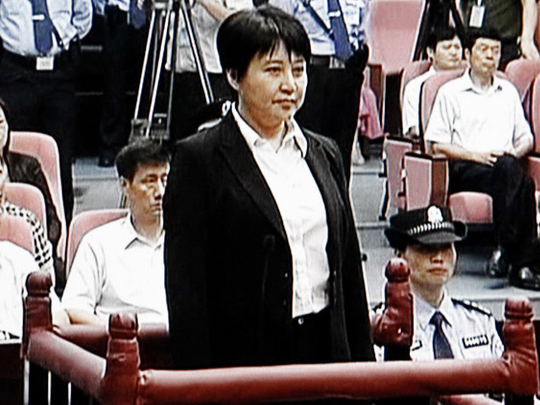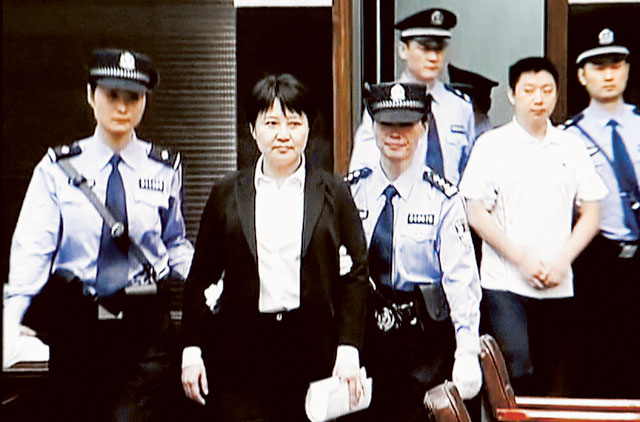
Beijing: As a high-flying international lawyer married to one of China’s most promising politicians and with a son at Harvard, Gu Kailai appeared to have it all.
But a life of luxury and influence is a distant memory for the wife of disgraced leader Bo Xilai, who on Monday was handed a suspended death sentence for murdering a British man.
Gu confessed during her trial this month in the eastern Chinese city of Hefei to killing 41-year-old Neil Heywood by pouring poison down his throat, saying that he had threatened her son after a business deal went sour.
The daughter of a renowned general, Gu, like her husband Bo Xilai, is a member of an elite group in Communist China whose family background has given them influence and privilege not enjoyed by most.
But since her detention earlier this year, a new picture has emerged of an at times volatile woman with a troubled childhood and a reported history of depression.
Like Bo, she studied at the prestigious Peking University, although the pair did not meet until 1984, while she was on a research trip near the eastern city of Dalian, where he had taken a post as a local party secretary.
“He was very much like my father, that sort of extremely idealistic person,” Gu, 53, told the Southern Weekend, a local weekly, in an interview published in 2009, recalling her first encounter with Bo.
“He lived in a small dirty room. He offered me an apple before telling me about his ideas.”
They married two years later and in 1987 had a son, Bo Guagua, who attended one of Britain’s most prestigious private schools, Harrow, followed by Oxford University and a postgraduate degree at Harvard.
She began work as a lawyer the same year the boy was born, later setting up her own firm and winning plaudits as the first Chinese attorney to successfully challenge a legal decision in US courts — an experience she recounted in two books that became bestsellers in her home country.
Ed Byrne, an American lawyer who worked with Gu, recalled her as “smart, charismatic, attractive”. “I was very impressed with her,” he said in a television interview.
As her husband’s political career took off, Gu gave up the law, a sacrifice to which Bo paid tribute at a press conference in March that was to prove one of his last appearances before the couple vanished from public view in April.
He described her as a stay-at-home mother who had given up a promising career to take care of her family, and hit out at allegations - which at that stage were not yet public - that he said had been made against her.
Details that have emerged in recent months of Gu’s life with Bo, however, suggest that his portrayal of a humble housewife was far from the reality.
She is reported to have spent several years in Britain while her son was at school there — a place arranged by Heywood.
While in Britain, she stayed at the most expensive hotels and enjoyed access to a private jet owned by a billionaire friend, according to sources quoted in the New York Times.
But despite rising to a position of influence, Gu’s life had not always been so comfortable.
During the Cultural Revolution her parents were detained and her four sisters sent to the countryside for re-education, forcing her to drop out of school and scrape a living variously as a construction worker, a butcher and a lute player.
Xinhua news agency said that Gu told her murder trial that she suffered the breakdown after “learning that my son was in jeopardy”.
She told the court the case had been “like a huge stone weighing on me for more than half a year”.
“During those days last November, I suffered a mental breakdown after learning that my son was in jeopardy,” she said, referring to Bo Guagua, who is believed to have had a dispute with Heywood over money.
“The case has produced great losses to the Party and the country, for which I ought to shoulder the responsibility, and I will never feel at ease,” she added.













